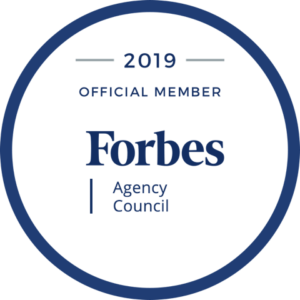 Last week, I was delivering a workshop on Executive Presence and Communication to a group of high-potential executive women at a large financial services firm. As always, I encouraged the group to share relevant stories and anecdotes at any time during our half-day together.
Last week, I was delivering a workshop on Executive Presence and Communication to a group of high-potential executive women at a large financial services firm. As always, I encouraged the group to share relevant stories and anecdotes at any time during our half-day together.
During the segment in which we addressed the special challenges of being commanding and confident on conference calls and in videoconferences, one of the women spoke up to ask a question:
She started by sharing a story from the day before about a presentation she had made that became an extremely frustrating and disappointing experience. Her presentation was a demo; half of the audience was in the room and half on the phone, with everyone looking at the same screen. She had prepared for a week. As she described it, she began the presentation and, not a few minutes into it, a male colleague who was on the phone jumped in and took over most of the rest of the talking.
Her question for me and the group was, “what should I or could I have done to stop him?” She noted that he had a company-wide reputation for talking over others and out of turn and she characterized it as a bad case of mansplaining.
Was this a case of mansplaining? Maybe, but it’s hard to say since both genders are guilty of this sort of thing. But for sure it was a case of what I call hijacking. So let’s talk about a few ways to stop hijackers in meetings and presentations:
-
Set agreements and be clear about roles and responsibilities in the meeting or presentation with colleagues in advance. If it needs to be a co-presenting situation, then be specific about that in the meeting invite so everyone knows, and also be deliberate in how the preparation work is divided (i.e. make sure everyone who is presenting carries a proportionate load of the prep work). If the presentation is solely yours, make that known too by letting attendees know there will only be one speaker, how long you plan to speak for, how long Q&A will be, and that there will be others on the team present to help fill in during Q&A.
-
Use a Focal Point that helps establish what’s going to happen during the meeting and what the desired outcome is. For example, in a presentation like the one above, in which there’s a demo to introduce new software, and other team members are in on the call, the Opening/Focal Point might sound something like this: “I will be walking you through the demo, which should take about 15 minutes. After that, we will have another 15 minutes to answer your questions and fortunately several team members [names] are also here and can help answer your questions. By the end, I am hoping you’ll feel like you have a solid introduction to the new software, which should make it considerably easier for you once we go live.”
The Focal Point sets clear expectations and gives you a “home base” to return to in the event of a hijacking. In other words, you can always break in on your hijacking colleague’s stolen air time and say, “Rob, I know you’re as eager as I am to make sure everyone appreciates all the advantages of this new software but let me get through these initial screens so that everyone gets the same solid introduction and then you can add to what I’ve gone over once we break for Q&A.”
-
If you’ve done the best you can do by employing the above suggestions and you still get hijacked, then I would revert to directness wrapped in good manners, which is a nice way of saying, go ahead and interrupt the hijacker! Wait for the person to pause or take a breath and then interrupt directly and politely. For example, “Rob, thanks for sharing your input, you’ve been a great contributor to the team that’s put this together. Now, if we look at the screen where I left off, you’ll notice the navigation … “
At the end of the day, hijackers are usually known quantities in an organization and when they do it repeatedly and predictably, it’s a poor reflection on them, not you. Nonetheless, especially if you’re anticipating the possibility of being hijacked, then you would be wise to plan ahead with the suggestions I shared above. Good luck out there!
- New Agey Advice for Nervousness - November 3, 2022
- Your Passion Can Go a Long Way Toward Building Connection - October 10, 2022
- Keep stage fright a private matter while you’re speaking on a public stage! - August 11, 2022



